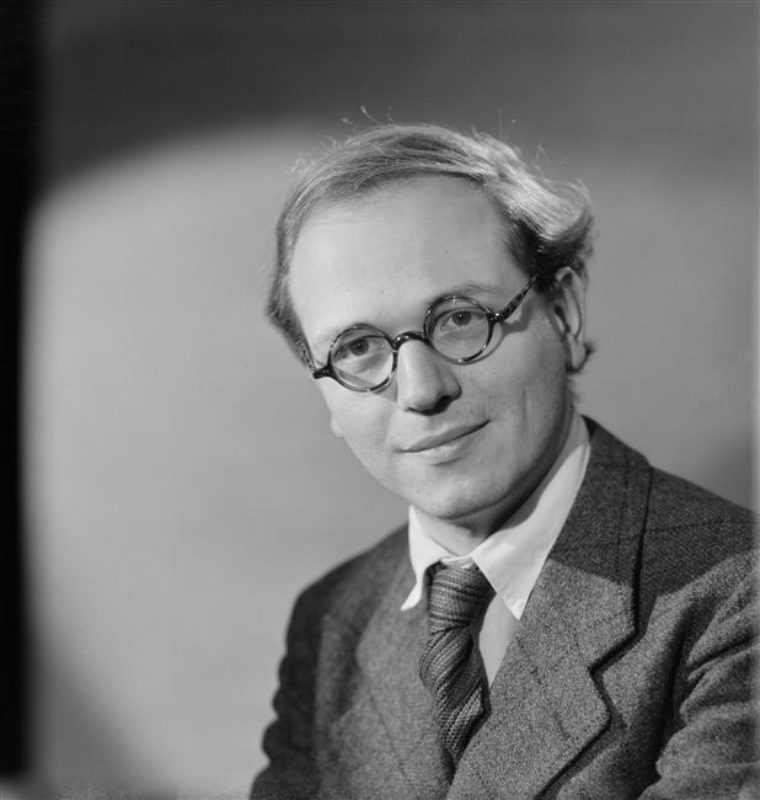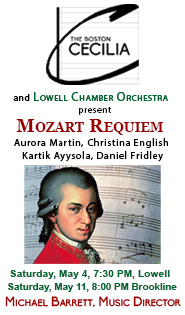Illuminating Boston Artists Ensemble program contrasts two French masters

Olivier Messiaen’s Quartet for the End of Time was performed by Boston Artists Ensemble Sunday in Brookline.
Boston Artists Ensemble presented a program of contrasts on Sunday at St. Paul’s Church in Brookline. The program of Fauré and Messiaen—French composers with divergent aesthetics, made for an afternoon of melodic and harmonic vibrance consonant with the first days of spring.
The program was divided between Fauré’s Trio in D minor and Messiaen’s Quartet for the End of Time. Though written within twenty years of each other, the two pieces were in many ways opposites: the Fauré is tuneful, dark, and lush, but with powerful harmonic and thematic tensions that reflects its roots in late French Romanticism.
Conversely, Messiaen’s quartet contrasts atonal clusters and aggressive thematic interventions with long silences and wandering unisons. In spite of the differences between the pieces, however, their shared qualities of unity, tension, and resolution made pairing the two mutually illuminating.
Scored for the traditional piano, violin, and cello, the Fauré Trio featured violinist Sharan Leventhal, cellist and BAE artistic director Jonathan Miller, and pianist Randall Hodgkinson. While excellent players individually, ensemble dialogue in the first movement was inconsistent, with the musicians struggling to coalesce in the piece’s opening material.
These issues largely resolved in the second and third movements, making way for a beautifully rendered duet between Leventhal and Miller in the opening of the Andantino. The third movement Allegro Vivo was the highlight of the piece, with the interventions of the dance motifs and alternating unisons leading to a stirring conclusion in the piece’s final chords.
The program continued with Messiaen’s Quartet, in which the superb playing of the ensemble provided a revelatory performance of this complex piece.
Messiaen wrote his quartet for piano, violin, cello, and clarinet while captive in a German prison camp in 1941. True to its title, Messiaen’s Quartet, is not only an exploration of the apocalypse as expressed in the Book of Revelation, but on the themes of time and timelessness—in both a musical and theoretical sense.
Thomas Martin, associate principal clarinet of the Boston Symphony Orchestra, played with exceptional virtuosity throughout the piece and especially in the first and third movements, which depend heavily on the clarinetist’s shaping of the thematic material. The confidence and clarity of his rendering of the third movement, “Abyss of the Birds” was deeply moving.
Contrasting the timelessness of the first and third movements, with their wandering intervals and long silences, are movements 2, 4, and 6, which center driving unisons that increase in their intensity. Miller and Leventhal moved in sensitive and tensile harmony in the second movement, immersing the listener in an uncanny experience at once familiar (Messiaen calls the duet a “plain-song like chant” in his note) and profoundly strange.
The fourth movement Scherzo was a powerful continuation of the unison of the second movement. Here the ensemble drove the piece forward as one, navigating deftly between the opening rhythms of the movement and the charming allusions to quartets of the 18th century with playful pizzicati and classical melodies. The sixth movement—with a formality not yet experienced in the piece—turned the unisons of movements two and four to a sense of the inevitability of time as it drives relentlessly towards both the apocalypse and the conclusion of the quartet.
The two “Praise” movements, five and eight, feature duets, between cello and piano, and violin and piano respectively. Here, Hodgkinson provided the most delicate support for the soloists, as both Leventhal and Miller balanced the tension between faith in the promise of eternity and the inescapable forward movement of time in the movements between. The gentle, confiding motions of Miller’s rendering of the fifth movement were a true suspension of time and thought; perhaps seeking balm to the soul that the imprisoned Messiaen searched for while composing it.
Boston Artists Ensemble presents a program of Saint-Saëns, Debussy, and Beethoven April 12 and 13. bostonartistsensemble.org
Posted in Performances
